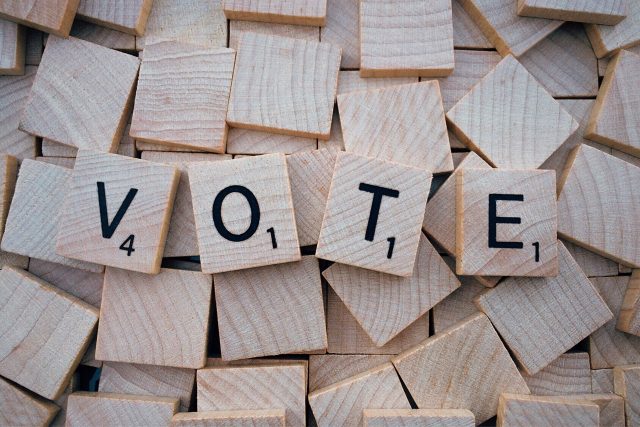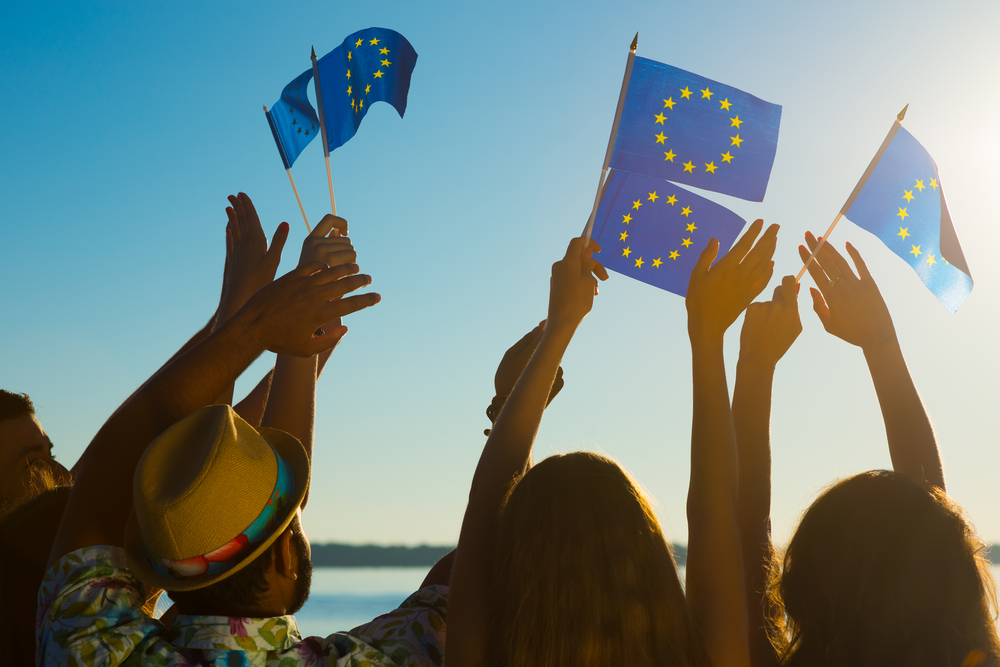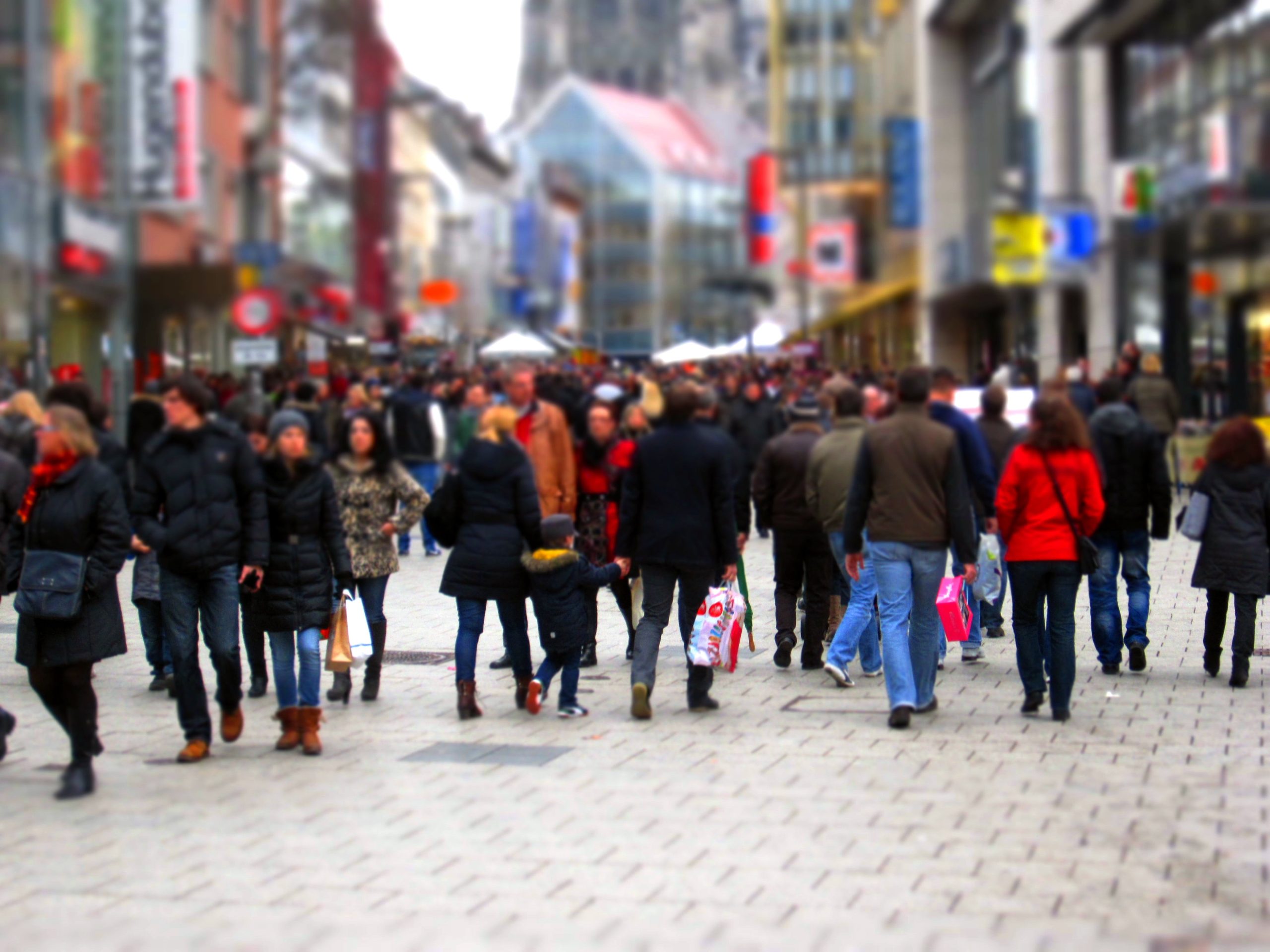
Public interest in the 9th of June European Parliament elections appears to have increased significantly since the last European elections five years ago. The latest Eurobarometer data, released recently, shows an average increase in voting intention at European Union level of 10% compared to a similar poll in 2019. The number of those who say they will definitely or most likely go to the polls has increased in all but two Member States: Belgium, where the percentage of those interested in voting fell slightly, and Bulgaria, where the population is being called to its sixth election in three years. Two Central and Eastern European countries are at the top of the list in terms of increased voting intention: the Czech Republic and Romania, where the percentage of those who say they might vote has increased significantly by 30 and 20 percent respectively. However, these two countries do not qualify for the top third of the European rankings in terms of voting intention, which are dominated by the Nordic countries – Denmark, the Netherlands, Sweden and Finland, Germany, Ireland and three countries where voting is compulsory: Greece, Belgium and Luxembourg. On the other hand, about half of Europeans have an overall positive view of the EU, but a similar proportion think the Union is heading in the wrong direction. More than half of those surveyed say the European Parliament should play a bigger role in the future. At the same time, most – almost 40% of those polled – believe that the first thing the EU should focus on to strengthen its position in the world is its defence and security.
Romania: Intention to vote in the EU Parliamentary elections – 74 %
According to the latest European poll, voting intention in Romania’s EU Parliamentary elections reached 74%, up 19% from 2019, putting the country in 10th place in Europe. The data show that half of Romanians continue to have an overall positive image of the EU (50% compared to the European average of 47%), although the percentage of those who have an overall negative image has increased by 7% compared to 2019, to 19% (slightly above the European average of 18%). On the other hand, only 35% of Romanians believe that the EU’s role in the world has become more important in recent years (compared to the European average of 40%) and another 35% say it has remained the same. Most Romanians agree with most Europeans that the main area on which the EU should focus in the future to strengthen its position in the world is defence and security (33% compared to the European average of 37%), followed by energy security (28% compared to 30% European average) and food security and agriculture (31% above the European average of 30%).

Some 53% of Eurobarometer respondents said they would like the European Parliament to play a more important role in the future (fewer than the EU average of 57%), and 37% think its role should be diminished (higher than the EU average of 28%). When asked what values the European Parliament should defend, most Romanians (39%) opted for democracy, respect for national identities, culture and traditions in the Member States (26%) and solidarity between them (24%). As for the election campaign issues that should be addressed in the campaign for the European Parliament elections, most Romanians indicated support for the economy and for the creation of new jobs (42%), public health (37%) and the fight against poverty and social exclusion (33%) as the most important. These are also in the top three places in the European top three, but in reverse order.
The living standards of 46% of Romanians have fallen in the last five years
Most Romanians surveyed – 46% – said their standard of living had decreased in the last five years, similar to those who said it had not changed, while only 7% said their standard of living had increased. 65% of respondents (compared to the European average of 71%) say that Romania has benefited from EU membership, while 30% (compared to the European average of 23%) say it has not benefited from joining the EU. The majority of Romanians said they “strongly disagree” with the statements “my voice matters in the EU” (56% compared to 48% EU average) and “my voice matters in my country” (52% compared to 37% EU average). 53% of Romanians believe that “their country’s voice matters in the EU” (below the European average of 67%) and only 42% disagree with this statement (but the percentage is much higher than in other countries, with an average of 29%).
Asked how the European Union has responded to a number of crises, Romanians said they were satisfied with measures on climate change (46%), the economic and financial situation (39%), Russia’s invasion of Ukraine (39%), migration (39%) and Brexit (36%). At the other end of the scale, 60% of Romanians said they were dissatisfied with the EU’s response to the Covid pandemic, 58% said it had not taken the necessary measures in the economic and financial field, and the war in Ukraine or migration, on which the percentages of dissatisfied were equal at 56%.
However, 61% of Romanians, equal to the European average, are optimistic about the future of the EU and only 35% – again equal to the average – are pessimistic. Romanians are also more optimistic than the EU average that the country’s economic situation will be better in a year’s time (21% compared to 14%). It is worth noting that Romanians differ from other Europeans when asked about their views on countries outside the EU. The percentage of those who have an overall positive view of China is almost double the European average (45% compared to 24%) and is higher than the EU average for the US (61% compared to 48%) and Russia (18% compared to 12%). The most significant difference in perception is towards Turkey, where 55% of Romanians have a favourable view, compared to 26% of the European average.

According to Eurobarometer data, only 20% of Romanians know the exact date of the EU Parliamentary elections, but the percentage is much higher than the European average of 14%. The majority – 48% compared to the European average of 38% – only know that the European parliamentary elections are taking place this year.
On the other hand, more than 50% of Romanians surveyed said that it is important for them to vote for the MEPs who will represent them in the European legislature, and 40% – that these elections are of medium importance to them. The percentage of those who say that the importance of the European Parliament elections is of low importance to them is much lower than the European average – 5% compared to 10%. This is similar to the percentage of Romanians who said they never vote, which is also lower than the European average of 9%. Unlike other Europeans, almost 60% of Romanians surveyed said they always vote, regardless of the type of election. On the other hand, 63% of Romanians say that voting in national elections is important, but this is below the EU average of 69%.
Another interesting aspect is that the Eurobarometer data overlap somewhat with the latest surveys conducted by Romanian polling companies. In Romania, on 9 June, there will be not only European parliamentary elections but also local elections. According to a recently released poll, 60% of those who said they would definitely go to the polls to elect their mayors and representatives in local and county councils. At the same time, 57% of those polled said they were in favour of merging the two types of elections.
The European Parliament is formed of 705 MEPs who are organised into 27 committees, which are responsible for preparing the work of Parliament’s plenary sessions. MEPs are directly elected by the citizens of the 27 Member States. During sessions, MEPs are not grouped according to nationality, but according to their political affinities, in other words, by political group. There are currently 7 political groups in the European Parliament: EPP: Group of the European People’s Party (Christian Democrats) ; S&D: Group of the Progressive Alliance of Socialists and Democrats in the European Parliament: Renew: Renew Europe; Greens/EFA: Greens/European Free Alliance; ECR: European Conservatives and Reformists; ID: Identity and Democracy; The Left: Left – GUE/NGL.



 Subscribe
Subscribe